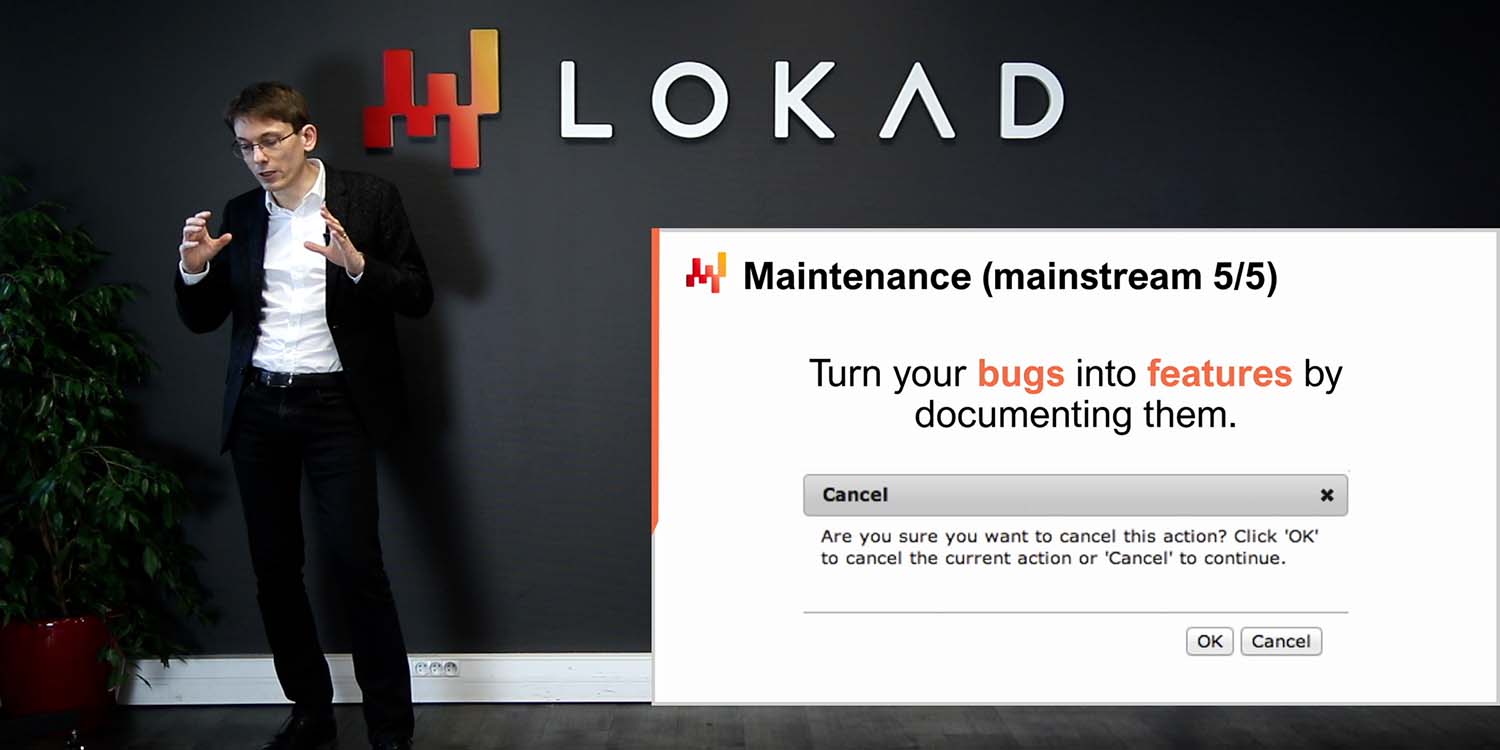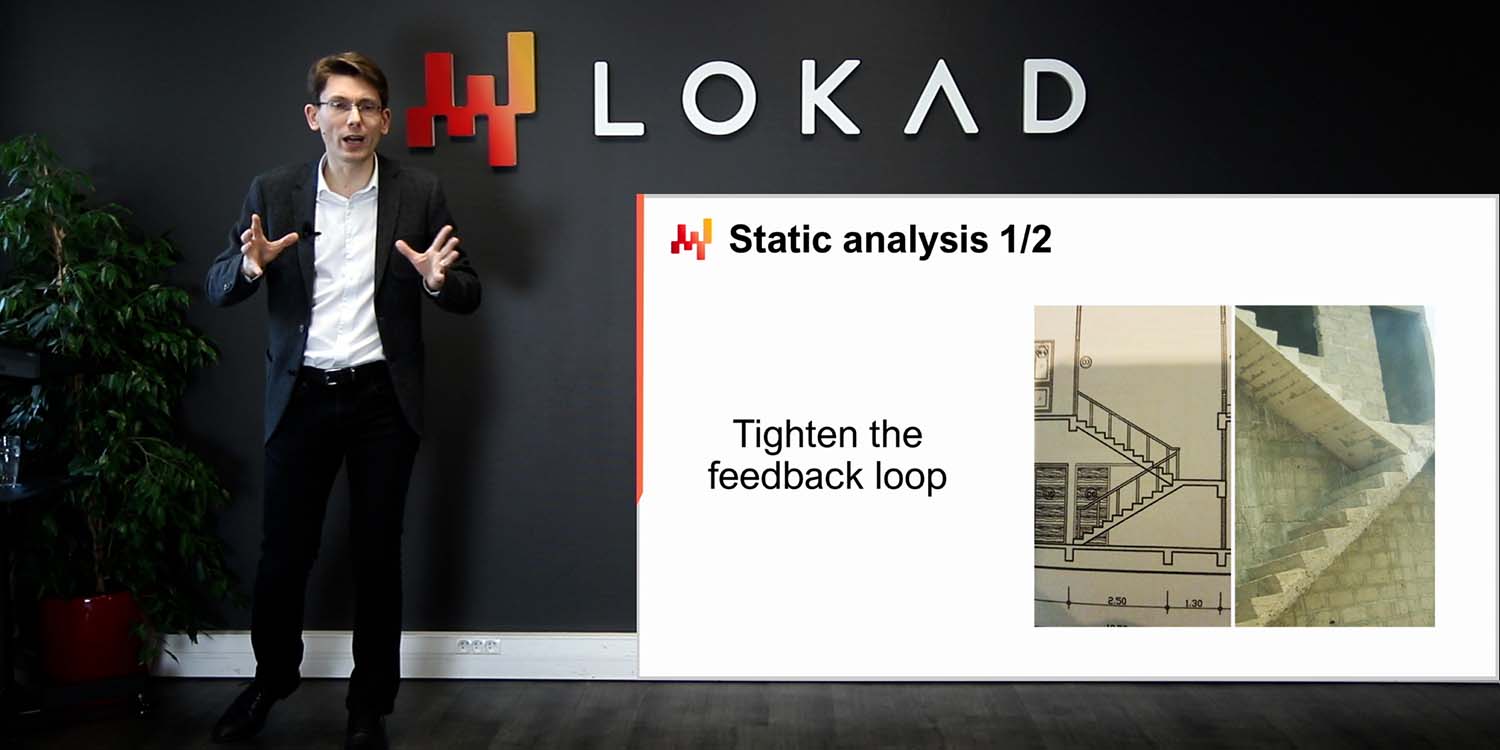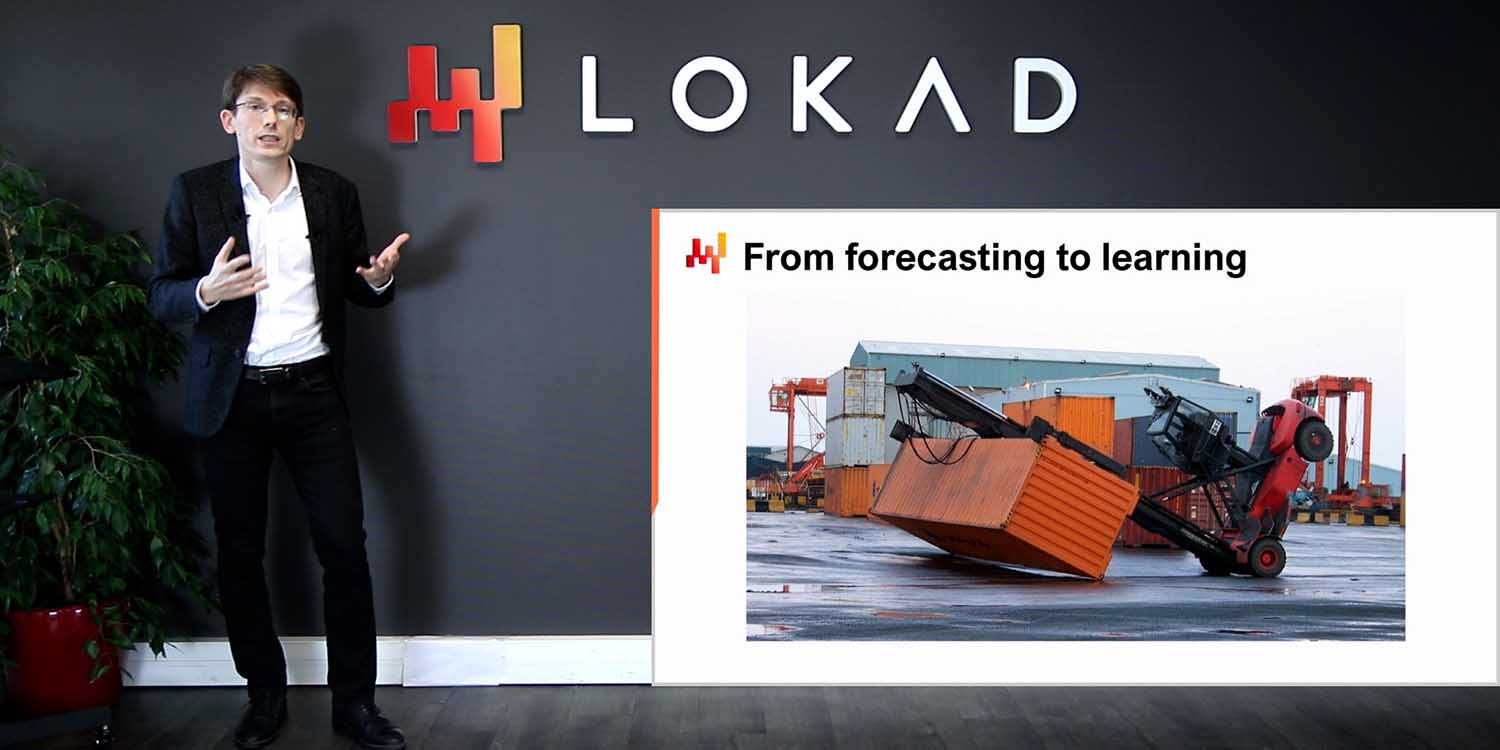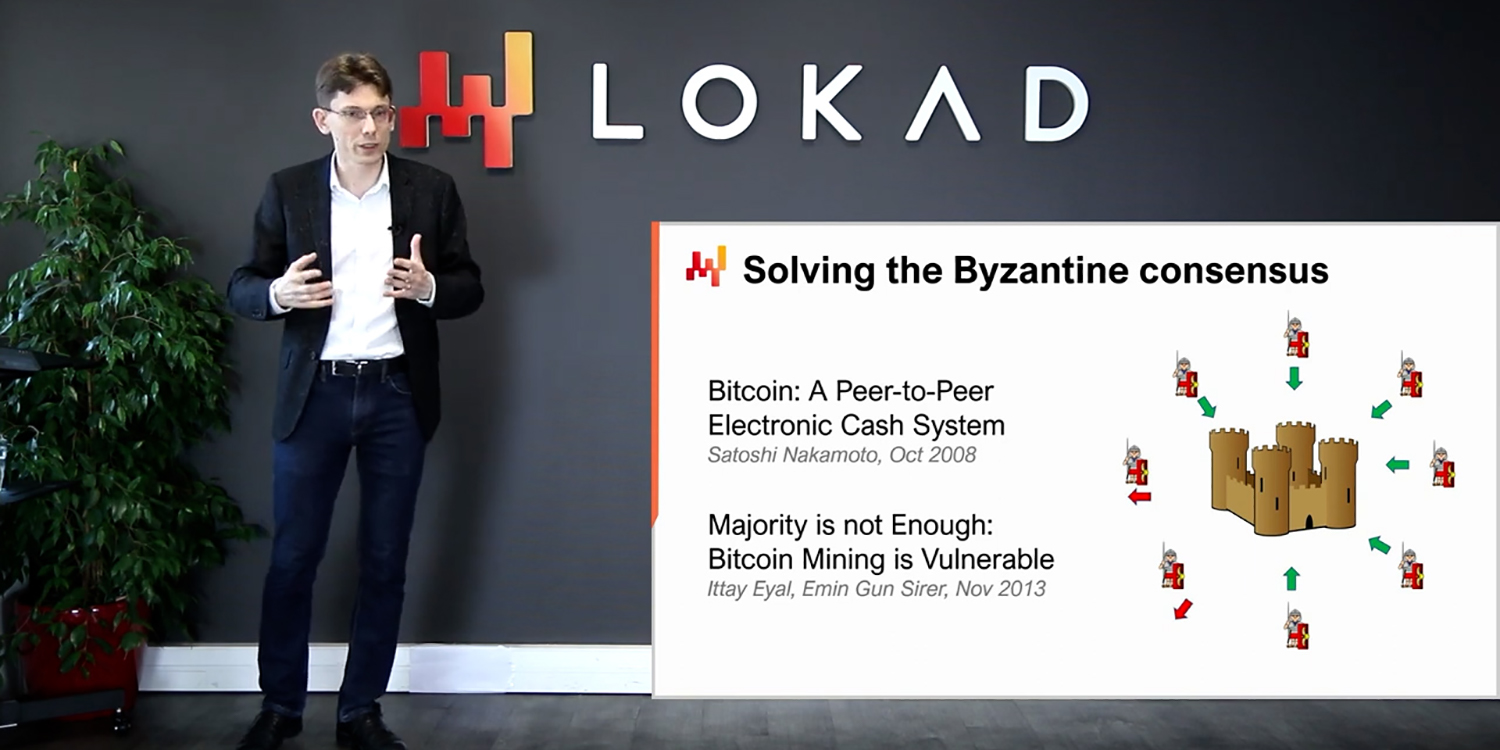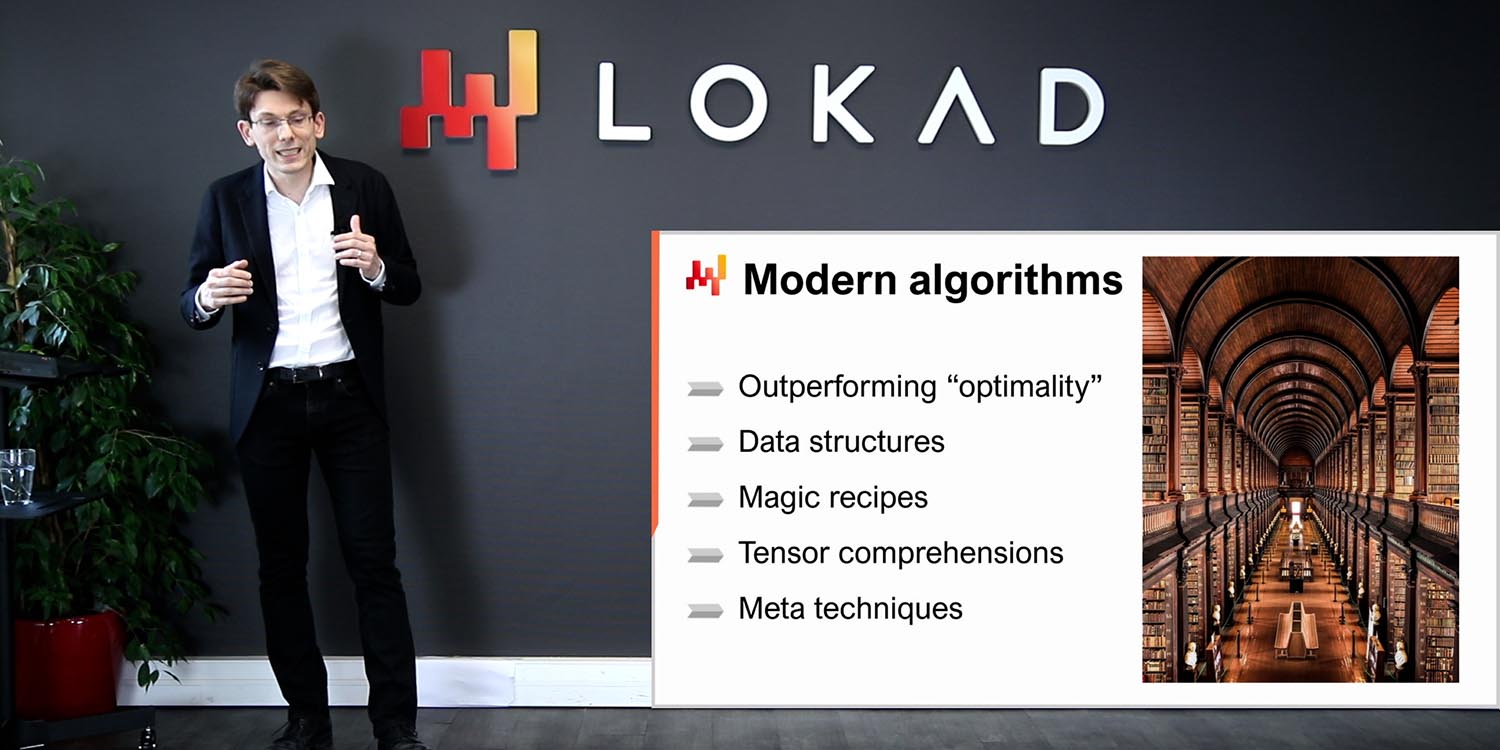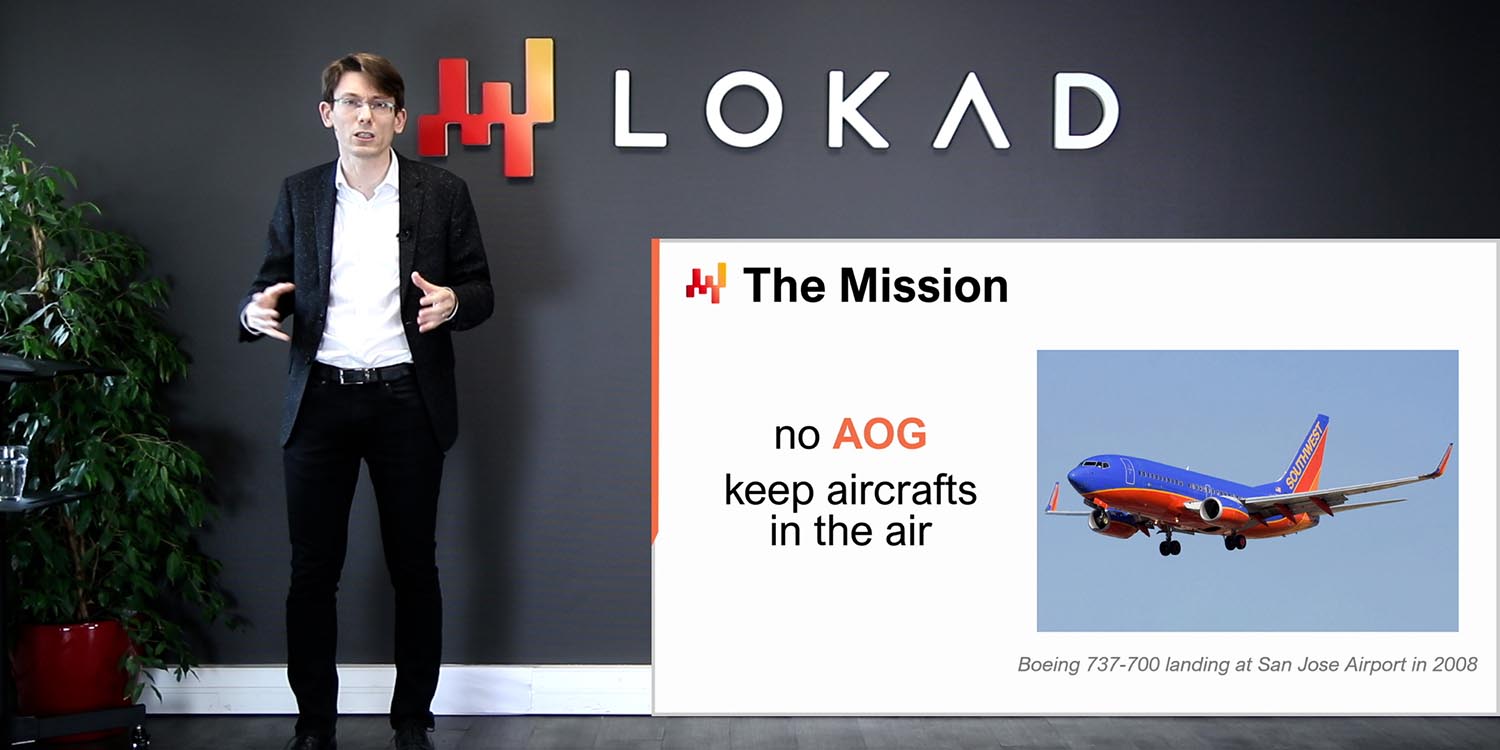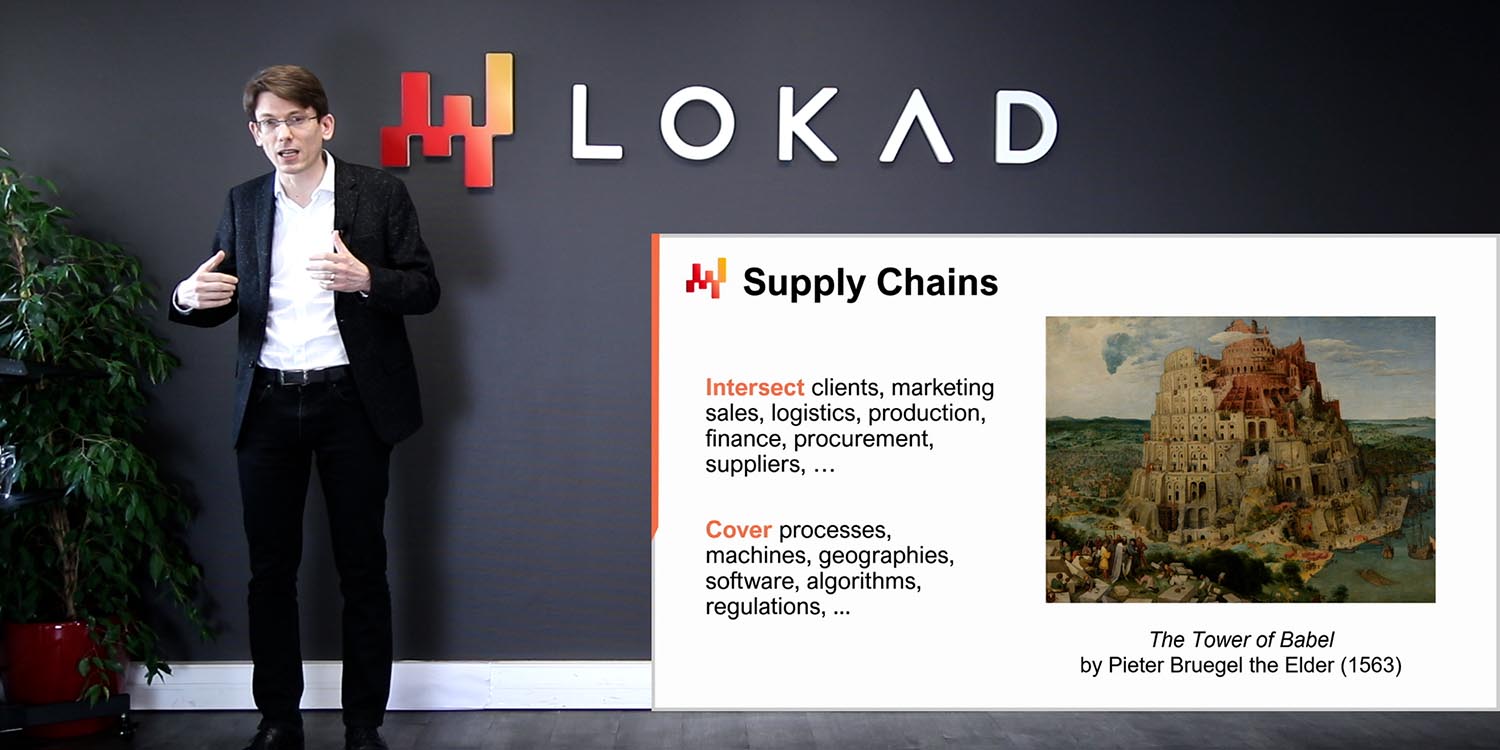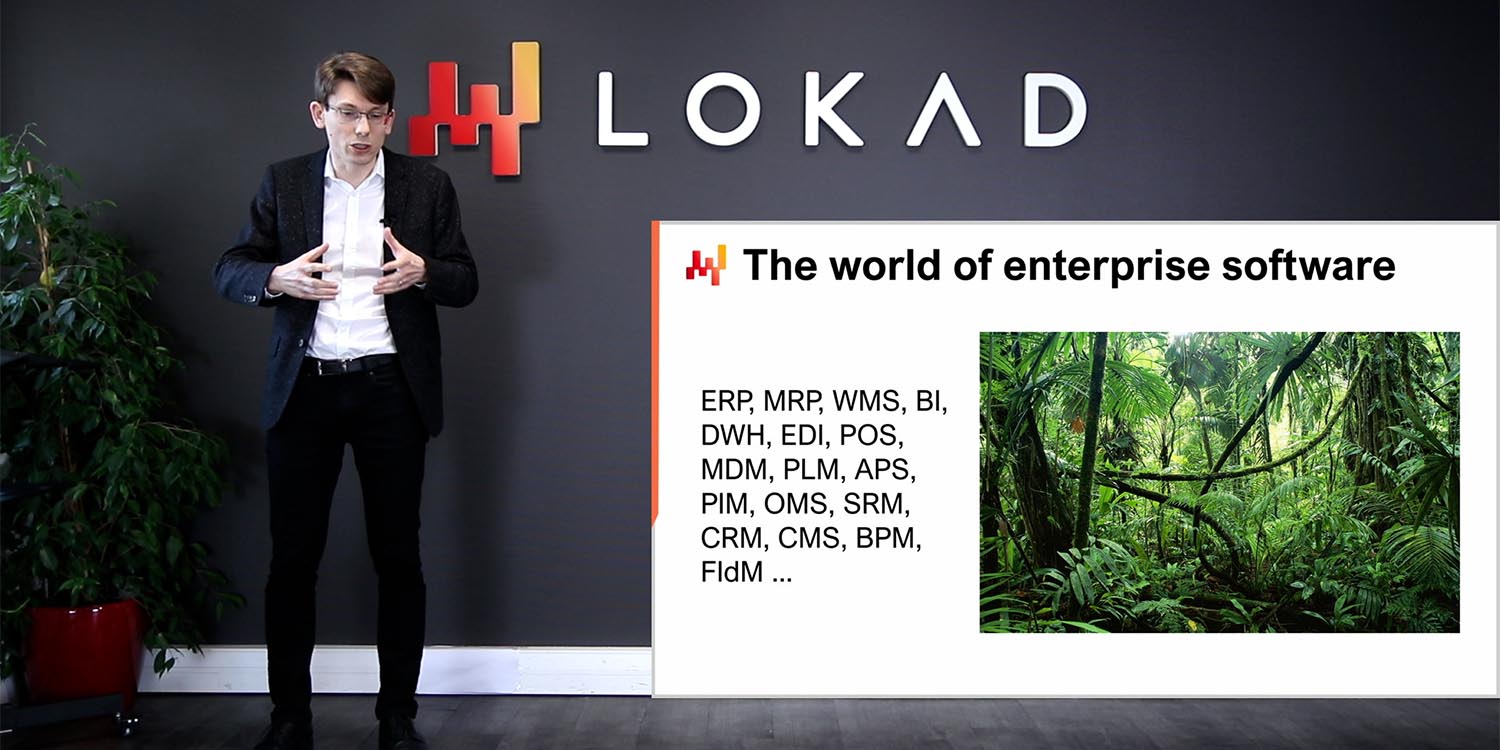Supply Chain Lectures
BACK TO LOKAD TV ›
Software engineering for supply chain - Lecture 4.6
Taming complexity and chaos is the cornerstone of software engineering. Considering that supply chains are both complex and chaotic, it shouldn’t come as too much of a surprise that most of the enterprise software woes faced by supply chains boil down to bad software engineering.
Languages and compilers for supply chain - Lecture 4.5
The majority of supply chains are still run through spreadsheets (i.e. Excel), while enterprise systems have been in place for one, two, sometimes three, decades - supposedly to replace them. Indeed, spreadsheets offer accessible programmatic expressiveness, while those systems generally do not.
Supply chain persona: San Jose, homeware ecommerce - Lecture 3.3
San Jose is a fictitious ecommerce that distributes a variety of home furnishing and accessories. They operate their own online marketplace. Their private brand competes with external brands, both internally and externally. In order to remain competitive with larger and lower priced actors, San Jose’s supply chain attempts to deliver a high quality of service that takes many forms, well beyond the timely delivery of the goods ordered.
Machine learning for supply chain - Lecture 4.4
Forecasts are irreducible in supply chain as every decision (purchasing, producing, stocking, etc.) reflect an anticipation of future events. Statistical learning and machine learning have largely superseded the classic ‘forecasting’ field, both from a theoretical and from a practical perspective. We will attempt to understand what a data-driven anticipation of the future even means from a modern ‘learning’ perspective.
Mathematical optimization for supply chain - Lecture 4.3
Mathematical optimization is the process of minimizing a mathematical function. Nearly all the modern statistical learning techniques - i.e. forecasting if we adopt a supply chain perspective - rely on mathematical optimization at their core. Moreover, once the forecasts are established, identifying the most profitable decisions also happen to rely, at its core, on mathematical optimization. Supply chain problems frequently involve many variables. They are also usually stochastic in nature. Mathematical optimization is a cornerstone of a modern supply chain practice.
Blockchains for supply chain - Lecture 4.21
Cryptocurrencies have attracted a lot of attention. Fortunes were made. Fortunes were lost. Pyramid schemes were rampant. From a corporate perspective, the blockchain is the polite euphemism used to introduce similar ideas and technologies while establishing a distanciation with those cryptocurrencies. Supply chain use cases exist for the blockchain but challenges abound as well.
Amsterdam, cheese brands (persona) - Lecture 3.2
Amsterdam is a fictitious FMCG company that specializes in the production of cheeses, creams and butters. They operate a large portfolio of brands over multiple countries. Many business conflicting goals must be carefully balanced':' quality, price, freshness, waste, diversity, locality, etc. By design, milk production and retail promotions put the company between the hammer and the anvil in terms of supply and demand.
Modern algorithms for supply chain - Lecture 4.2
The optimization of supply chains relies on solving numerous numerical problems. Algorithms are highly codified numerical recipes intended to solve precise computational problems. Superior algorithms mean that superior results can be achieved with fewer computing resources. By focusing on the specifics of supply chain, algorithmic performance can be vastly improved, sometimes by orders of magnitude. Supply chain algorithms also need to embrace the design of modern computers, which has significantly evolved over the last few decades.
Modern computers for supply chain - Lecture 4.1
Modern supply chains require computing resources to operate just like motorized conveyor belts require electricity. Yet, sluggish supply chain systems remain ubiquitous, while the processing power of computers has increased by a factor greater than 10,000x since 1990. A lack of understanding of the fundamental characteristics of modern computing resources - even among IT or data science circles - goes a long way in explaining this state of affairs. The software design underlying the numerical recipes shouldn’t antagonize the underlying computing substrate.
Miami, an aviation MRO (persona) - Lecture 3.1
Miami is a fictitious aviation MRO (maintenance, repair, overhaul) in the USA serving a large fleet of commercial aircraft. In aviation, security is paramount. Parts and components must be routinely inspected and potentially repaired. Miami is in the business of keeping aircraft in the air at all times, avoiding AOG (aircraft on ground) incidents, which happen whenever a part needed to conduct a maintenance operation is missing.
Writing for supply chains - Lecture 2.5
Supply chains involve the coordination of large teams. Thus, written materials are king. Modern supply chains are simply not compatible with oral tradition. Yet, supply chain practitioners often fare terribly as far as their written communication skills are concerned. Let’s review what usability studies, and some notable experts, have to say on these matters.
Adversarial market research for enterprise software - Lecture 2.4
Modern supply chains depend on a myriad of software products. Picking the right vendors is a matter of survival. However, as the number of vendors is large, companies need a systematic approach in this undertaking. The traditional market research practice starts with good intent but invariably ends up with bad outcomes, as market research firms end up acting as marketing fronts for the companies they are supposed to analyze. The hope that an unbiased research firm will emerge is misplaced. However, the vendor-on-vendor assessment is a methodology that allows even a biased market research firm to produce unbiased results.
